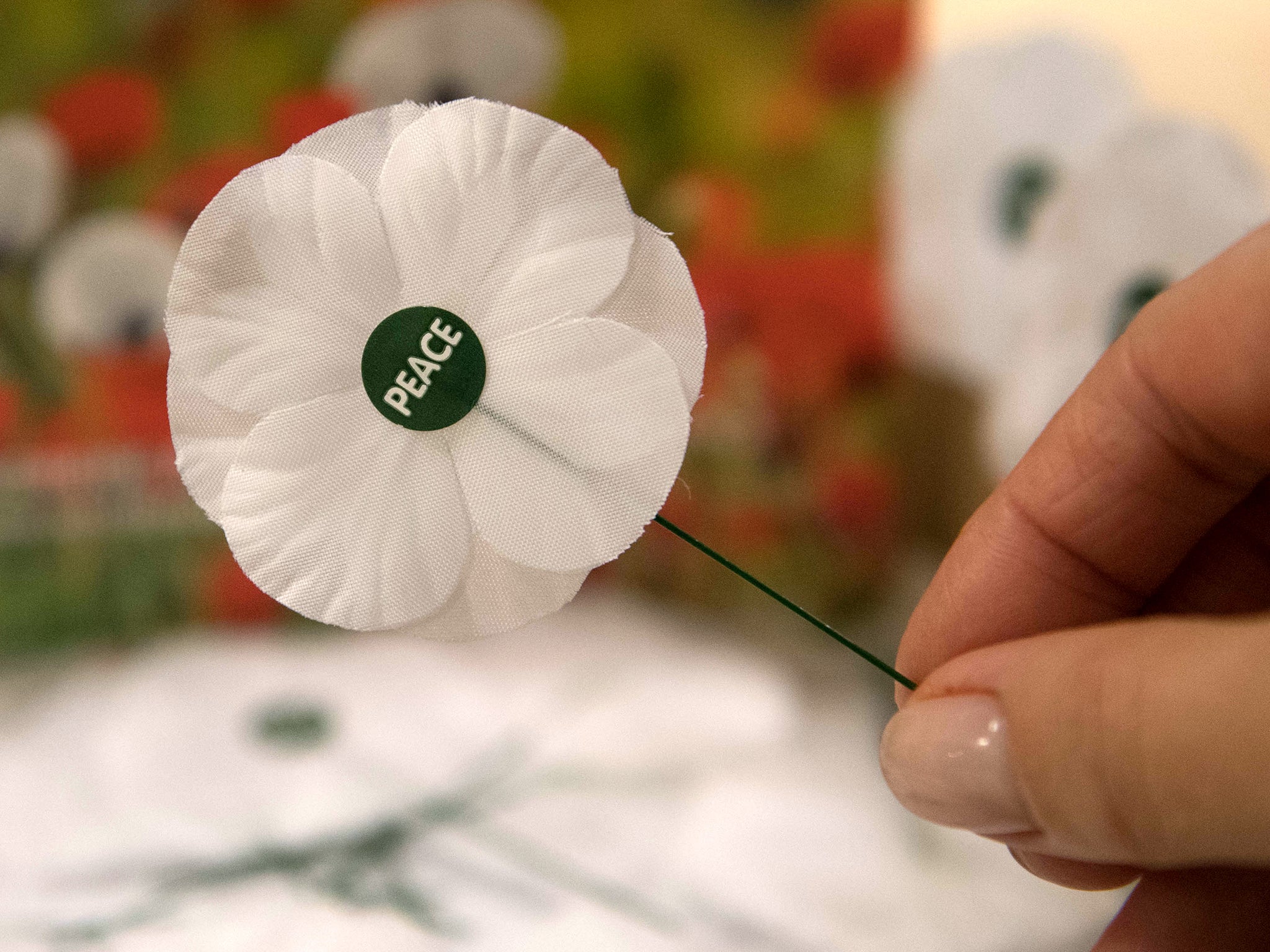Military veterans demand Tory minister apologises for calling white poppies ‘attention seeking rubbish’
Exclusive: ‘Unfair’ remarks from Johnny Mercer MP prompt backlash from veterans who say he should instead spend energy on addressing homelessness and mental health among ex-servicemen and women

Your support helps us to tell the story
From reproductive rights to climate change to Big Tech, The Independent is on the ground when the story is developing. Whether it's investigating the financials of Elon Musk's pro-Trump PAC or producing our latest documentary, 'The A Word', which shines a light on the American women fighting for reproductive rights, we know how important it is to parse out the facts from the messaging.
At such a critical moment in US history, we need reporters on the ground. Your donation allows us to keep sending journalists to speak to both sides of the story.
The Independent is trusted by Americans across the entire political spectrum. And unlike many other quality news outlets, we choose not to lock Americans out of our reporting and analysis with paywalls. We believe quality journalism should be available to everyone, paid for by those who can afford it.
Your support makes all the difference.Military veterans are calling on a Conservative minister to apologise after he called white poppies “attention seeking rubbish” and urged people to “ignore” those who wear them.
Veterans minister Johnny Mercer last month accused people who wore the white “pacifist” poppy – an alternative to the traditional red poppy, usually worn to symbolise commitment to peace as well as remembrance for war victims – of “hijacking symbolism” for their own ends.
He said on Twitter: ”Ignore the wearers of them. If you don’t want to wear a poppy don’t bother; they fought and died so you could choose. But don’t deliberately try and hijack it’s symbolism for your own ends.”
Mr Mercer’s remarks have prompted a backlash from some military veterans, who argue he should instead spend energy on addressing issues that face former servicemen and women settling back into civilian life.
A letter to Mr Mercer signed by 12 former former members of the armed forces states: “As veterans who wear white poppies, we do not expect the Minister for Veterans to encourage people to ignore us. We would expect someone in your position to be aware that a percentage of white poppy wearers are former armed forces personnel.
“We wear white poppies because we share the values that they represent: remembrance for all victims of war of all nationalities, including both civilians and armed forces personnel; a commitment to peace; and a rejection of any attempt to celebrate or sanitise war.
“We suggest that instead of worrying about what poppy someone might wear, as Minister for Veterans, you would be better spending your energy addressing the issues afflicting veterans of all services.”
The letter, seen exclusively by The Independent, goes on to point out that veterans are disproportionately represented in the homeless population, in prisons, and among those with mental health issues.
“While the state pays for the waging of war, veterans are expected to rely on charity when they return to civilian life,” it states. ”In recent years, the government has been cutting the welfare state on which veterans should be able to rely, while maintaining the seventh highest military expenditure in the world.
“We look forward to receiving an apology from you, along with a public acknowledgement that your comments were unfair and inaccurate.”
Debate around which colour poppy to wear on Remembrance Sunday has become particularly divisive in recent years.
While critics of the white poppy often associate it with left-wingers or conscientious objectors – despite it being worn by some war veterans – opponents of the red poppy have sometimes suggested it glorifies military conflict – a claim vigorously rejected by the Royal British Legion.
Since adopting the symbol in 1936, the Peace Pledge Union, Britain’s oldest secular pacifist organisation, has repeatedly argued that the white poppy is both a rejection of militarism and a mark of remembrance for all victims of war, soldiers and civilians alike, of all nationalities.
Join our commenting forum
Join thought-provoking conversations, follow other Independent readers and see their replies
Comments